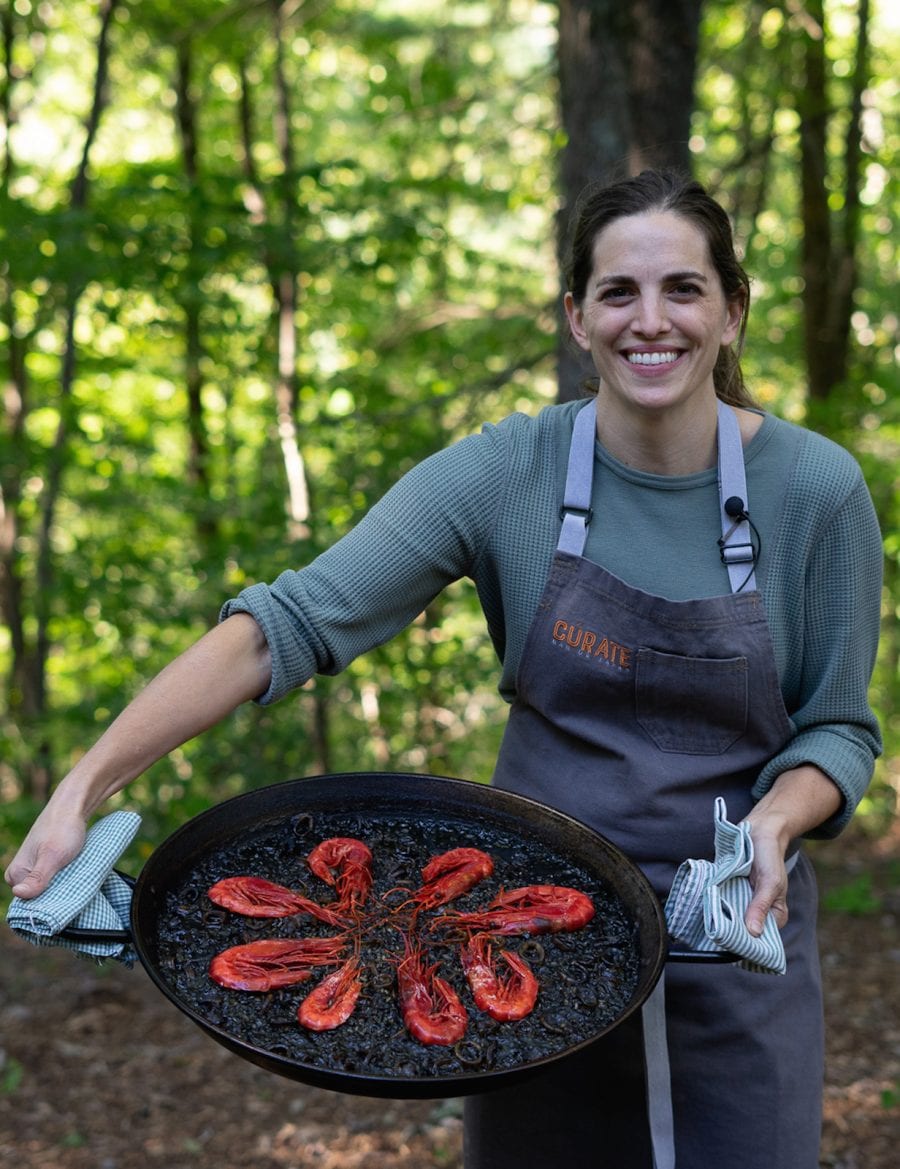How a chef-led group united the voices of independent restaurants to make an impact
Between the time chef Katie Button closed down her Asheville restaurant Cúrate last March and re-opened at half capacity in July, she’d become a policy advocate. About a month after the Independent Restaurant Coalition (IRC) was formed by a group of restaurant and bar owners from around the country, Button was on board. The group’s mission is to unite the voices of more than 500,000 independent restaurants in order make a legislative impact. Members include chefs and restaurant owners who represent an industry that accounts for eleven million jobs. And Button now sits on the leadership committee.
Having laid off her entire staff, a group of people that were not only friends but ones she had invested a lot of time and resources into training, Button realized restaurants couldn’t get back to work without federal support. “We needed aid that was specific for the restaurant industry, which has been uniquely impacted,” she says. Therefore, she became one of many very vocal chefs on the coalition and learned how she personally could affect change by actively taking part in the legislative process. “It’s not our elected officials’ fault if they don’t know our story. They’re only hearing from the top, largest companies in the country. We had to come up with a way to get heard loud and clear.”

So, she started talking. “I thought that certain people might be hard to reach, you know? For example, our [former] president’s chief of staff used to be the congressman for our district in North Carolina. I found that out by reaching out to our community,” she says. What’s more, she found that people were accessible and willing to listen.
What she told them was the story about how essential her own restaurant is to its local community. Restaurants like Cúrate are huge economic drivers in that for every dollar that comes in the door, ninety to ninety-five cents go back into the community—to suppliers, small farms, and workers, who then feed it back into grocery stores, rent, and services. If the prediction that eighty-five percent of all restaurants might fail rings true, or even comes close, all of that money dries up. “There is a huge risk in not helping this industry.”
One of the first acts of the IRC was to successfully advocate to make important changes to the original paycheck protection program, or PPP. The revised bill allowed for a longer time period for restaurants to use the funds since so many were still in stages of reopening and unable to do so immediately.
Then, they went to work, alongside bipartisan members of the house and senate, Representative Earl Blumenauer and Senator Roger Wicker to introduce the RESTAURANTS Act in June, which proposed a $120 billion revitalization fund. As of last week, as part of the American Rescue Plan that President Joe Biden signed off on, $28.6 billion was allocated to fund a grant program to support independent restaurants and bars. These funds will: give restaurants and bars the means to make payroll, pay down debt and cover other costs; allow more flexibility for how and when restaurants decide to reopen; encourage the rehiring of nearly 2 million restaurant and bar workers; and will be prioritizing grants to businesses owned by women and veterans, or are socially and economically disadvantaged.
“The passing of the American Rescue Plan proves that we have the power to make change,” Button says. “Over the past 11 months, restaurant operators, led by the Independent Restaurant Coalition, have made countless calls to representatives. Now, President Biden signed the vision into a reality. The timing couldn’t be better as we approach the one-year anniversary of hundreds of thousands of restaurants across the country closing their dining rooms, laying off their entire staff. I know many industries have suffered, but restaurants and bars are among the very hardest hit. I am so grateful that many of my peers and colleagues will not have to falter due to an event entirely out of their control, like this pandemic.”
And the IRC is not done yet, Button says. “This coalition will, moving forward, be there to advocate. We’re going to consider all issues and how they impact the independent restaurant community,” Button says. “We are going to continue to be that unified voice.”
share
trending content
-
Exploring Mississippi: A Quintessential Southern Experience
-
Recipes From Our Summer Issue
by TLP Editors -
Elevate Your AWESOME with an Alpharetta Music Getaway
by TLP's Partners -
9 Noteworthy Tennessee Restaurants | Listen
by Margaret Littman -
Outdoor Adventure and Historic Charm Awaits in St. Martin Parish
by TLP's Partners
More From In the Field
-
From Pop-Up To Brick-and-Mortar | Listen
-
The Return of the Lynnhaven Oyster | Listen
-
What’s On the Horizon for 2024
-
Sorelle: La Dolce Vita in Vogue
-
Keya and Co. Turning Sadness into Sugar





